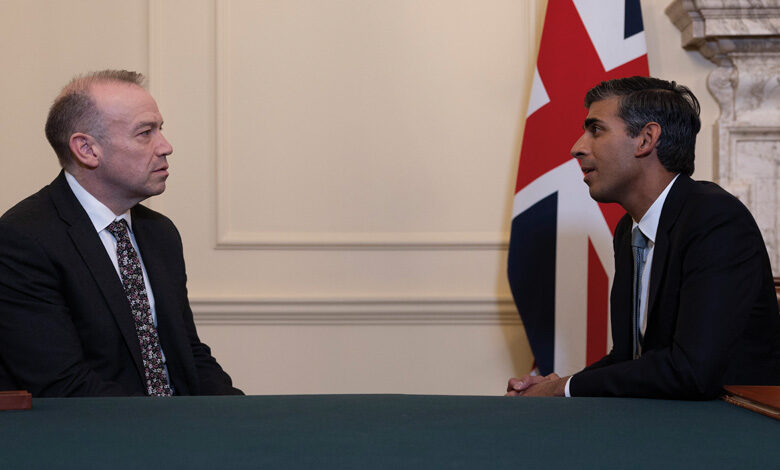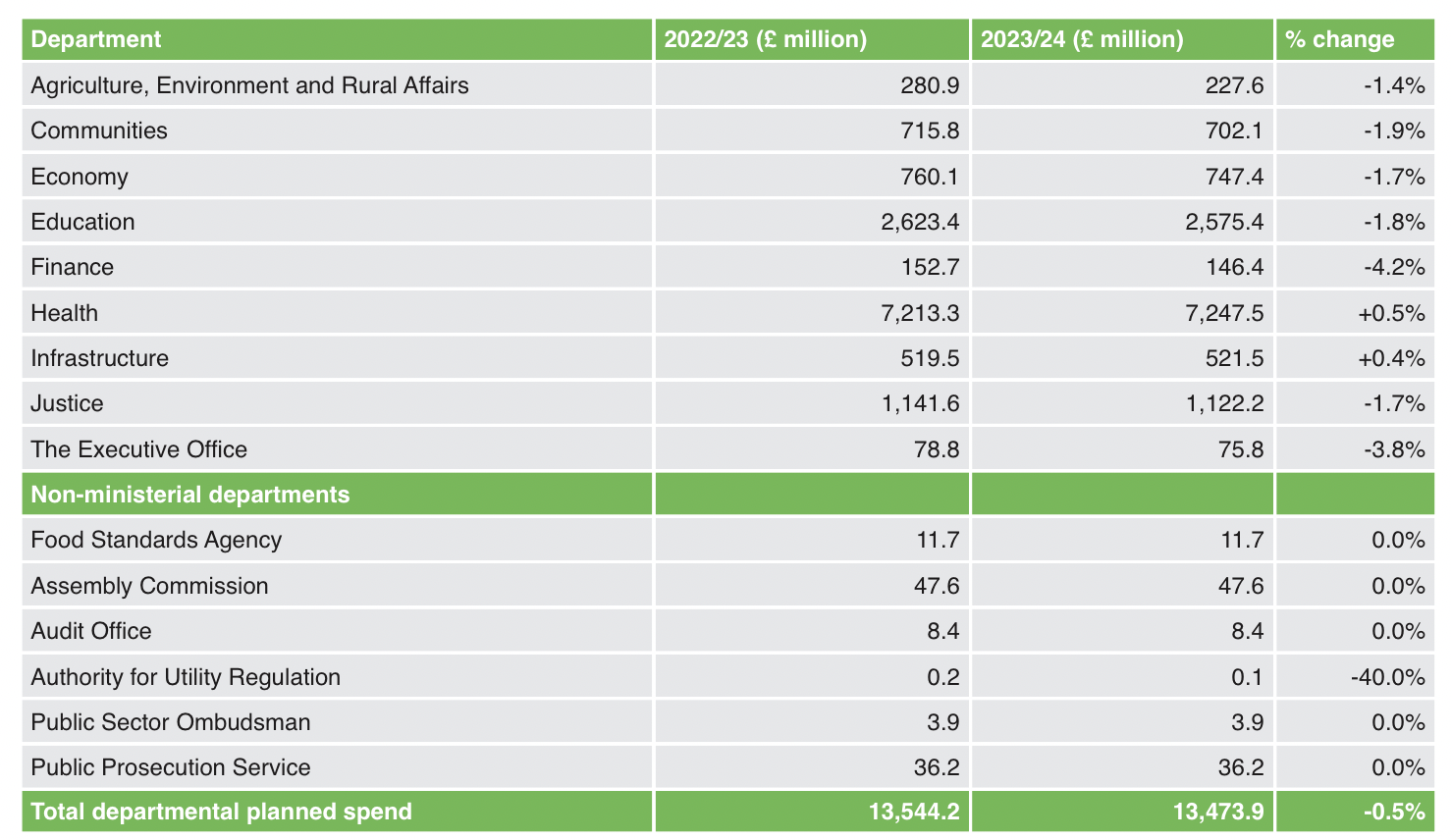Budget 2023/2024: In the absence of devolved government

Secretary of State for Northern Ireland, Chris Heaton-Harris MP, published the 2023/24 Budget in late April 2023. The £14.2 billion package represents a funding cut in cash terms from 2022/23, meaning that all departments will experience real term funding cuts.
The funding delivered by the Budget totals £14.2 billion in resource funding and £2.2 billion in capital funding, as compared to £14.3 billion and £2.1 billion respectively in 2022/23. This total amount means that the allocation to departmental budgets for 2023/24 will reduce by 0.4 per cent, with the Department of Finance noting that this “does not fully reflect the extent of the pressures facing individual departments due to inflation, rising costs, increasing demands and pay pressures”. The Department further states that in order to “live within the funding available, difficult decisions will have to be taken”.
To ‘live within the funding’, the Department for the Economy (DfE) faces making 16 per cent cuts to services due to a £130 million funding deficit. With over 70 per cent of DfE’s budget dedicated to supporting skills, further education, and higher education, the Department states that it is “inevitable that these sectors will be impacted”. There will also be reductions in funding for arm’s-length bodies and agencies across economic development, tourism, creative and screen industries, consumer protection, workplace safety and resolving disputes at work, and funding for actions included in the Path to Net Zero Energy Strategy will be “impacted”. DfE also notes that it will likely have to suppress current vacant posts in order to identify internal savings.
Heaton-Harris was forced to deny that the Budget was designed to “punish the people of Northern Ireland” for the continuing absence of the Assembly and Executive, as had been alleged by the DUP. “The purpose was not to punish anybody with this budget,” Heaton-Harris said. “It is to make sure services can continue in the absence of devolved government.”
The continuation of services will of course be a hot topic as the fallout from the budget continues over the coming months; whether all services continue with less funding, or some are eliminated will be among the “difficult decisions” the Department of Finance cited. Nonetheless, the fact remains that the Budget could have been even more severe on Northern Ireland; with a £660 million overspend in 2022/23, £297 million provided from the UK Reserve was due to be repaid from the 2023/24 budget, but “flexibility” has been granted by the Treasury, meaning that the balance can be repaid over two years rather than one.
The repayments made for this amount will be drawn from any future in-year Barnett consequentials, but the threat to other funding remains lingering into 2024/25, with the UK Government stating that should the amount repaid by Northern Ireland from its Barnett funding not amount to £297 million, the Treasury and Northern Ireland Office will “reallocate funding from previously announced Northern Ireland funding packages” to repay the residual in 2024/25. It is understood that there is a possibility of drawing on the financial transactions capital (FTC) stream that is consistently underspent by functioning assemblies in such a situation, although the Treasury would have to agree that FTC could be spent in this way.

The most likely source of Barnett formula funding comes from the expectation that the UK Government will eventually provide extra money to settle public sector pay disputes across England during the financial year. Should this come to pass, public sector workers in Northern Ireland will not be in line for similar pay rises as the money will instead be immediately diverted to the UK Reserve.
The effects of these funding cuts have already begun to be seen across the economy. The Department of Health announced in May 2023 that the “difficult budgetary situation” had led to the decision to cut 300 nursing student places, a cut described as an “act of destruction” by Royal College of Nursing’s Northern Ireland director Rita Devlin. A further result of the cuts in education means that officials have been asked to examine the revenue-raising potential of increasing university student fees to £7,000 per annum. The 1.8 per cent decrease in funding for the Department of Education also means that no new school building projects, including extensions to existing schools, will be undertaken in 2023/24.
Of the nine governmental departments, including the Executive Office, only two – health and infrastructure – have seen their budgets increased when compared to 2022/23; the Department of Health has seen its budget increase by 0.5 per cent, and the Department for Infrastructure by 0.4 per cent. Both of these increases will amount to cuts in real terms.
The Budget has occasioned that rarest of occurrences, across-the-board agreement among Northern Ireland’s political parties. Aside from the DUP’s accusation of Heaton-Harris administering a punishment budget, Sinn Féin’s Conor Murphy MLA stated that the budget would devastate public services, UUP leader Doug Beattie MLA stated that it did not contain “any flexibility”, SDLP MLA Matthew O’Toole said there would be a “real squeeze on public services”, and Alliance MLA Andrew Muir described discussions around the budget with Heaton-Harris as “grim and truly bleak”.
It is difficult to disagree with such diagnoses. When one considers the UK Spring Budget, unveiled just one month earlier than Northern Ireland’s budget in March 2023, and the increase in planned spending of £20 billion per year in the near term that it delivered, it is fair to ask how Northern Ireland finds itself facing cuts to every facet of public life.





